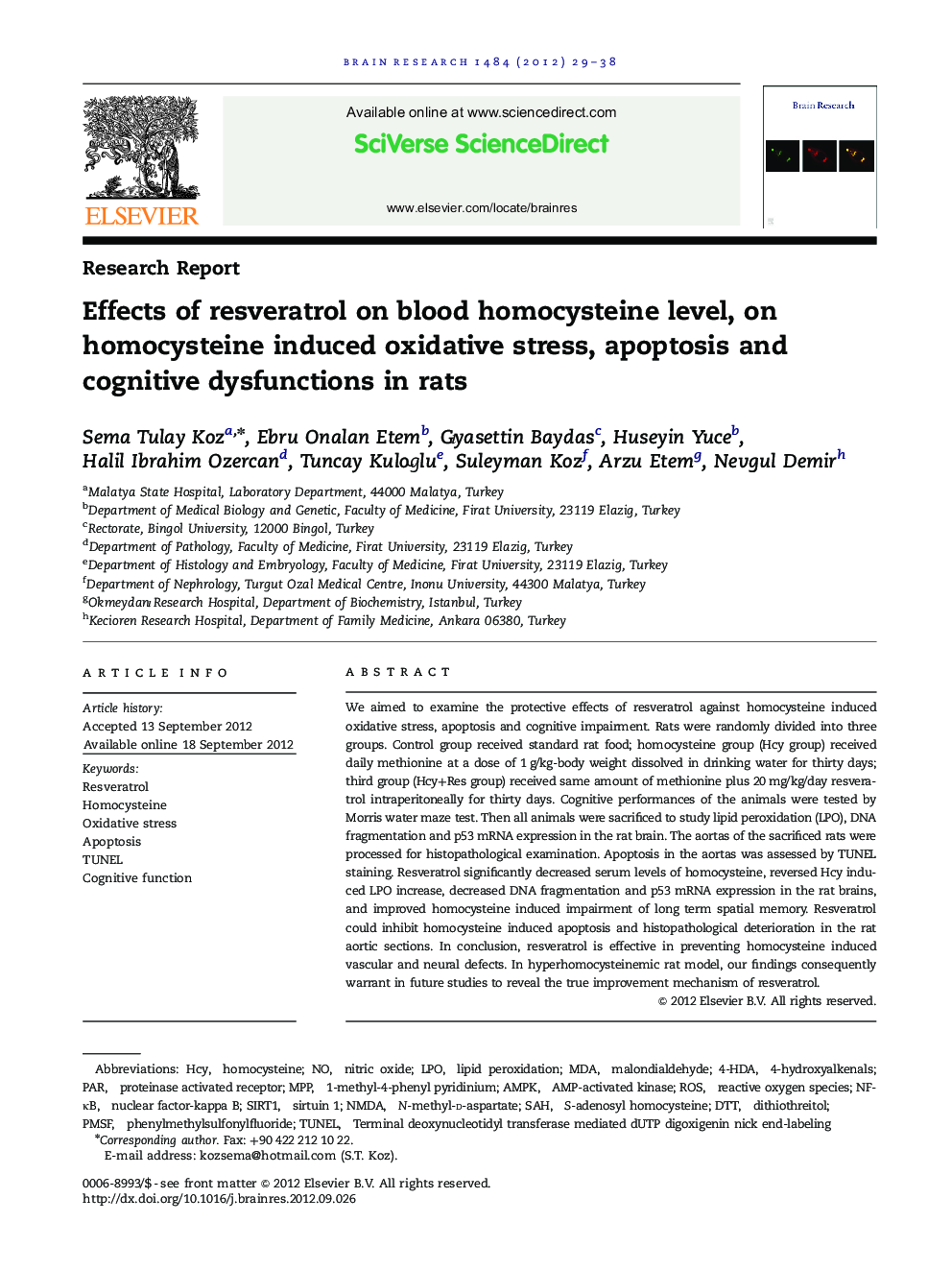| Article ID | Journal | Published Year | Pages | File Type |
|---|---|---|---|---|
| 4324936 | Brain Research | 2012 | 10 Pages |
We aimed to examine the protective effects of resveratrol against homocysteine induced oxidative stress, apoptosis and cognitive impairment. Rats were randomly divided into three groups. Control group received standard rat food; homocysteine group (Hcy group) received daily methionine at a dose of 1 g/kg-body weight dissolved in drinking water for thirty days; third group (Hcy+Res group) received same amount of methionine plus 20 mg/kg/day resveratrol intraperitoneally for thirty days. Cognitive performances of the animals were tested by Morris water maze test. Then all animals were sacrificed to study lipid peroxidation (LPO), DNA fragmentation and p53 mRNA expression in the rat brain. The aortas of the sacrificed rats were processed for histopathological examination. Apoptosis in the aortas was assessed by TUNEL staining. Resveratrol significantly decreased serum levels of homocysteine, reversed Hcy induced LPO increase, decreased DNA fragmentation and p53 mRNA expression in the rat brains, and improved homocysteine induced impairment of long term spatial memory. Resveratrol could inhibit homocysteine induced apoptosis and histopathological deterioration in the rat aortic sections. In conclusion, resveratrol is effective in preventing homocysteine induced vascular and neural defects. In hyperhomocysteinemic rat model, our findings consequently warrant in future studies to reveal the true improvement mechanism of resveratrol.
► Hyperhomocysteinemia increased oxidative stress, DNA breaks, p53 mRNA expression in the rat brain and impaired learning. ► Homocysteine induced apoptosis and histopathological deterioration in the rat aortic sections. ► Resveratrol decreased blood levels of homocysteine. ► Resveratrol is effective in preventing homocysteine induced vascular and neural defects.
